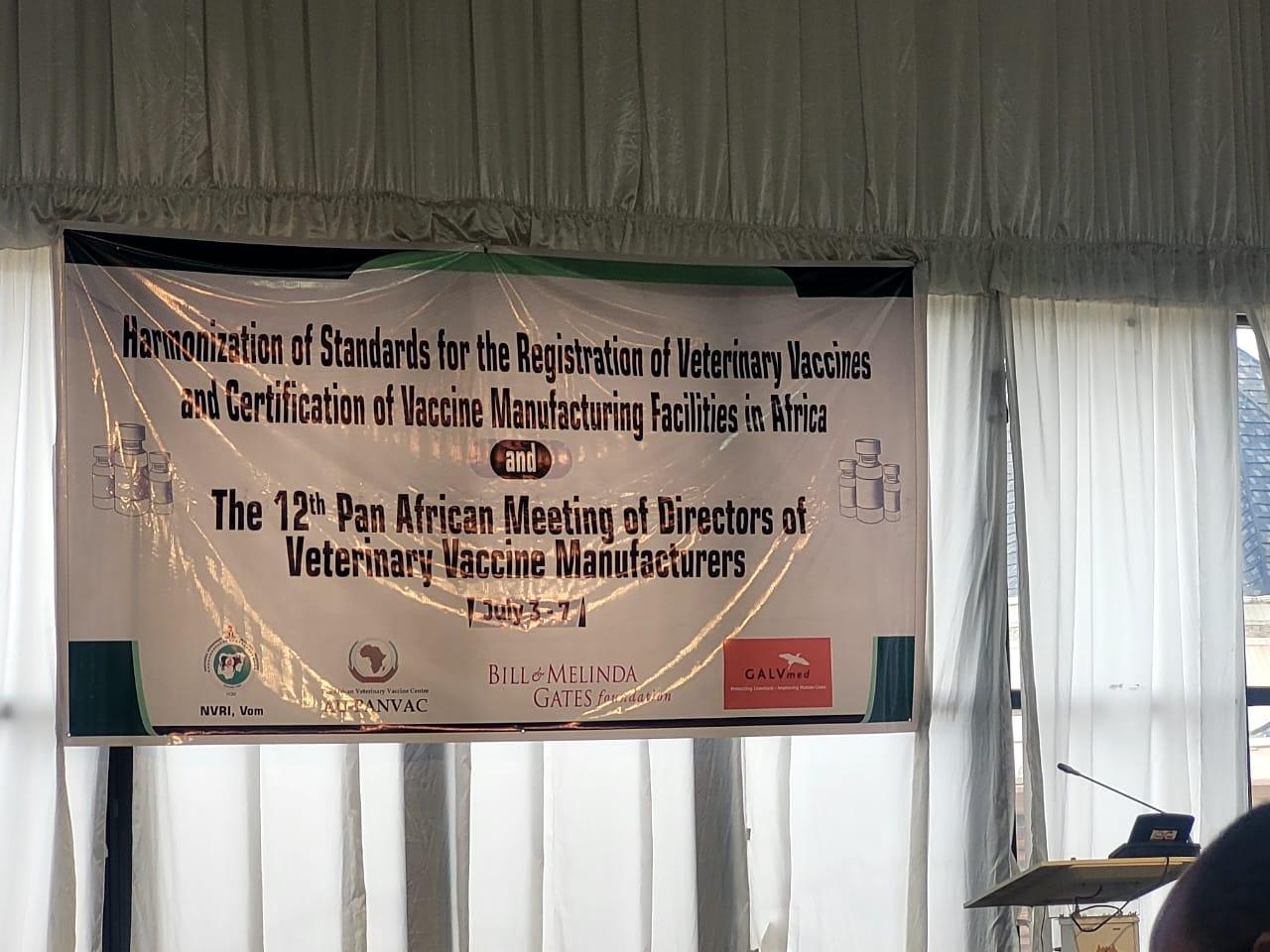Africa-Press – Eritrea. Eritrea managed to produce, after a series of meticulous preparations and procedures, vaccines against two important animal diseases: namely, Pesticides Petites Ruminants (PPR) and Newcastle Disease (NCD). As a result of this important achievement, a number of developments ensued; including a call for Eritrea to become a member of the Pan-African Vaccine Producing countries. Subsequently, Eritrea participated in the 12th Pan-African Meeting of Directors of Veterinary Vaccine Manufacturers.
In this perspective, the Public Relations Divisions Office of the Ministry of Agriculture (MoA) conducted a brief interview with Mr. Amanuel Mebrahtu, who represented the National Animal and Plant Health Laboratory (NAPHL) of the MoA at the important meeting.
Question: Could you please introduce yourself?
Answer: I have a Bachelor’s degree in Veterinary Sciences from Hamelmalo Agricultural College. I have worked in the NAPHL, and MoA for the last 10 years in different sections – 4 years as a laboratory technician in the serology laboratory and 6 years in quality control for vaccine production. Currently, I work as the Head of the Vaccine Production and Quality Control Unit.
Q: Let’s discuss the meeting you had in Abuja, Nigeria from 3-7 July 2023. What was the agenda of the meeting?
A: The agenda of the meeting was to harmonize the standards of veterinary vaccine-producing countries in Africa so that all the countries concerned adopt similar work procedures and standards, and that each country registers its vaccine with the same dossier format.
Q: Who was the organizer of the meeting?
A: The organizing body of the meeting was the African Union Pan-African Veterinary Center (AU-PANVAC) – its Head Quarter was originally in Senegal but is in Ethiopia now. This institution checks the quality of the produced vaccine – i.e. its safety and purity – and finally issues certification and accreditation for the vaccine to be used and exported. AU-PANVAC receives samples not only from Africa but also from Europe, Asia, the Middle East as well as from some US institutions.
Q: Has Eritrea ever participated in other similar meetings?
A: No. For Eritrea, it was the first time.
Q: What was the reason behind inviting Eritrea to this meeting?
A: Eritrea was invited to this 12th Pan-African Meeting as a guest of honor. As already announced, Eritrea has produced two very important vaccines for endemic diseases in almost all African countries; the NCD and PPR. The NAPHL got certification from AU-PANVAC without any failure in each of the quality control tests. This was a pleasant surprise for the AU-PANVAC because the production of the PPR vaccine is not an easy process, even for those who produce it for several years. Also for us, it was not easy but at last, we achieved extraordinary results. It was after this important certification and announcement that Eritrea was invited to participate in the meeting and thus become a member of the vaccine-producing countries in Africa.
Q: What did you present during the meeting?
A: Eritrea’s presentation focused on the historical background of the laboratory including the time of its establishment; its punctuated trajectory of successes and setbacks since 1903. Moreover, we presented relevant details on the human resources, hardware capabilities, and organizational structure of NAPHL; its funding sources both from the Government and development partners, as well as its future plans.
Q: How was, then, the response from the participants?
A: The participants were impressed with our progress; especially by the fact that there were no hiccups or failures in the process. The feedback included important recommendations and emphasis on the need for sustainable production of vaccines.
Q: Is Eritrea now a full member of the organization?
A: Yes, Eritrea has accepted the invitation to become the 13th Member of the African Veterinary Vaccine Producing Countries.
Q: If you have any final words?
A: I just want to state that the meeting was very fruitful because it contributes to increased awareness in Africa for local production of veterinary vaccines besides serving as a forum for harmonization of standards and sharing experiences. In this respect, I wish to take this opportunity to express my appreciation to the organizers of the meeting.
Public Relations Division
Ministry of Agriculture
July 17, 2023
For More News And Analysis About Eritrea Follow Africa-Press







